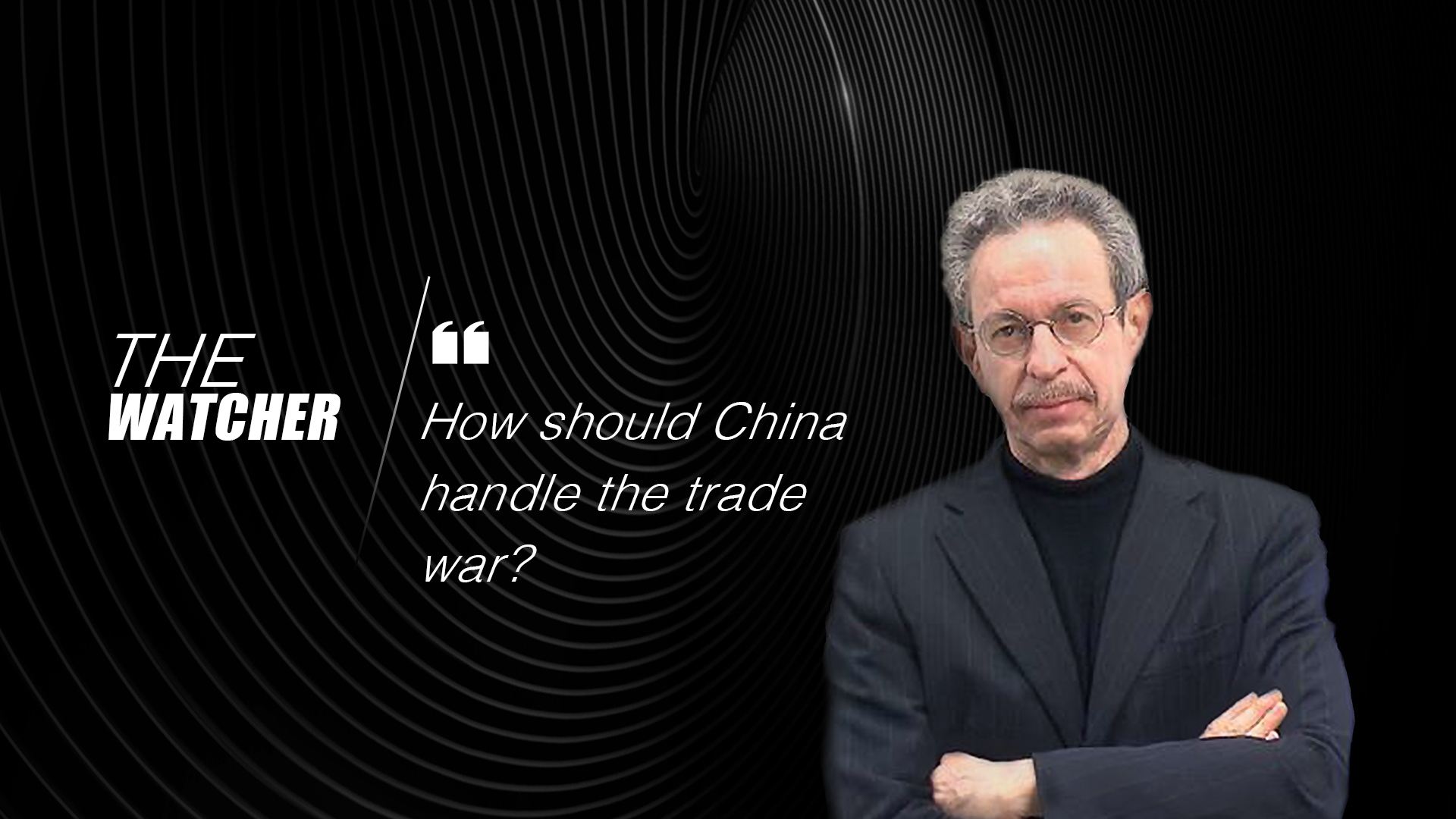
Opinions
16:40, 29-Jul-2018
The Watcher: How should China handle the trade war?
Updated
15:54, 01-Aug-2018
Robert L. Kuhn
04:04

I’m Robert Lawrence Kuhn and here’s what I’m watching: How China is responding to the trade war?
The US says the trade war is about more than the trade deficit. It is also about poor intellectual property protection, where China is already making progress, and forced tech transfers, which China is prepared to address.
It is also about “Made in China 2025” – the Chinese government-led-and-supported initiative to develop industries of the future, especially artificial intelligence, robotics, new energy vehicles, biopharma, and the like – which some in the Trump administration call central to the dispute.
But why should China renounce a program to enhance its industrial capacity and efficiency? If the US thinks Made in China 2025 is so great, the US should replicate it, or beat it, because the US cannot stop it.
Moreover, as the world’s second largest economy, engaged with every country on earth, it is simply impossible for China to maintain Deng Xiaoping’s almost 30-year-old maxim to “hide one's capacities and bide one's time”.
All China can do is state that it does not want the fight, will not start the fight, but does not fear the fight. China also asserts that if the fight is unavoidable, China will not escalate it and will try to modulate it.
For example, China only matches US tariffs, does not exceed them. In an underappreciated signal, Chinese officials said they would not interrupt foreign companies operating in China.
Trump is wildly unpopular among American elites, who do not need much of an excuse to criticize him, and they do bash him on tariffs. But these elites are not criticizing Trump on US moves to counter what they, with unusual unity, perceive to be China’s unfair, government-led-and-supported policies, and in some cases, unlawful programs–to become a world leader in state-of-the-art technologies, especially artificial intelligence.
China claims that it is still a developing country, so that different rules should apply, and that the real US motivation is to impede China’s rise. Here’s my fear. There has been a dark turn among American experts that US policy toward China over four decades has failed: China has become a competitor and may become an adversary.
Welcome to the unhappy world of self-fulfilling prophecy, where the actions of each side in response to a perceived threat from the other side increases the likelihood of that threat becoming real.
To both sides, I offer this advice. Think about why the other side is misinterpreting your actions. To my American friends, what makes China think the US is resisting its rise? To my Chinese friends, what makes the US think that China is a competitor and may become an adversary?
Projecting malevolent motives is the easy way out. It can solicit cheers and plaudits in one’s domestic media, but it will impede progress. The US and China must each figure out how not to confirm the other’s self-fulfilling prophecy. I’m Keeping Watch. I’m Robert Lawrence Kuhn.

SITEMAP
Copyright © 2018 CGTN. Beijing ICP prepared NO.16065310-3
Copyright © 2018 CGTN. Beijing ICP prepared NO.16065310-3